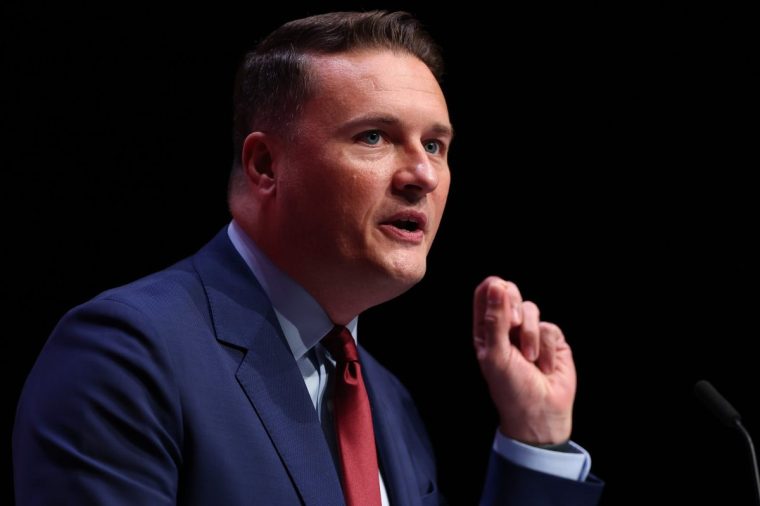The NHS is in the grips of a staffing shambles. Wes Streeting has vowed to fill the health service with UK graduates – so why are so many unemployed?
Resident doctors are going through a “nerve-wracking” time as competition for specialty training jobs continues to grow, making it harder for them to progress and leaving them in limbo or unemployed.
When UK medical students graduate, they begin two years of foundation training, spending blocks of time in different specialties. They generally then apply for internal medical, core surgical, acute care, GP or other specialist training such as paediatrics or psychiatry.
Unless their programme runs straight through to being fully qualified, after two or three years, they then pursue a higher training pathway in the area in which they want to specialise.
New FeatureIn ShortQuick Stories. Same trusted journalism.
In 2024, 4.7 applications were made on average for every core and higher specialty training post (59,698 applications for 12,743 roles), but the latest competition ratios show that this figure has risen to 7.2, with 91,999 for 12,833 places.
The ratio was more extreme in some specialties than others. In emergency medicine it was 14 to one, while in psychiatry it was 22 to one, in cardiothoracic surgery it was 74 to one and in sexual health it was 98.5 to one.
‘Disaster long in the making’
The British Medical Association (BMA) called this a “disaster long in the making as successive governments have failed to deliver enough training places to keep up with demand”.
It comes as first-year doctors in England represented by the BMA voted in favour of strike action over their jobs this week.
According to the union, 34 per cent of resident doctors surveyed said they had no substantive employment or regular work from August.
Health Secretary Wes Streeting has pledged in his 10-year NHS plan to create 1,000 new training posts over the next three years and prioritise UK graduates and doctors who have worked in the NHS for a significant period, but the BMA has said that action needs to be taken faster and on a wider scale.
In 2024, there were 12,743 training posts available, with 10,628 UK graduates and 14,868 international graduates applying. By 2025 the ratio was 12,305 UK graduates to 20,803 international graduates.
‘What is the point?’
Shivam Sharma, a trainee in child and adolescent psychiatry and deputy chair of the BMA’s resident doctors committee, told The i Paper that his peers are “feeling extremely worried and frustrated, and it’s just driving them out of the healthcare system”.
“When you see the competition ratios rising exponentially every year […] you just think: ‘What is the point?’
“You’re waiting up to 22 months to see a child psychiatrist, and at the same time you have this 22 to one competition ratio.”
 Health Secretary Wes Streeting pledged several measures to address the competition ratios issue, but the BMA said he must move faster (Photo: Jeff J Mitchell/Getty Images)
Health Secretary Wes Streeting pledged several measures to address the competition ratios issue, but the BMA said he must move faster (Photo: Jeff J Mitchell/Getty Images)
He said that the BMA welcomes Streeting’s pledge to prioritise UK graduates and doctors that have already been working in the NHS for several years for training places, but “we need to see some decisive action immediately. We can’t wait another year or two, when already thousands of doctors are unemployed in the UK.”
He also said that the number of training places needs to be expanded by more than 1,000, as “compared to other wealthy countries, the UK just doesn’t have enough doctors”. BMA analysis suggested that the UK is about 40,000 doctors short compared to EU countries.
‘I just want to start my life’
Shonnelly Novintan, 28, is a spokesperson at the Doctors’ Association UK and is working to secure a higher specialty training place in plastic surgery. However, there were no jobs in her region of the East of England this year when she applied. Across the whole country, there were only 42 posts for over 280 applicants.
Dr Novintan is currently working in a trust-grade role: a temporary, non-training, service provision post where doctors perform largely the same duties as a specialty trainee but without the opportunity to progress, and with reduced access to privileges such as a study budget for courses and protected study leave.
She will be applying again for a training place for next year, and said: “It is quite nerve-wracking because now it’s very much on my mind that this is the second time of applying, and if I weren’t to get a job this time round, that would mean that I would be on my third time of applying with two years out”.
She added that that is “substantial time to put your life on hold”.
Dr Novintan is eager to keep applying for plastic surgery even if she does not get a place this year, as “I am really passionate about this job” but “I just really want to start my life”.
She has known she wants to be a plastic surgeon since she became a doctor, “so for me, everything has just been postponing plastics training”.
‘Not very good for morale’
Maya Machesney, 25, a final-year medical student at the University of Sheffield and medical student co-lead at DAUK, told The i Paper that after a “random lottery” regarding where she will be placed for her foundation training next year, she finds the thought of specialty training applications “daunting” because she is “looking into the future, and it is still uncertain. It’s really stressful”.
“I’m still holding onto that grain of hope” that things will get better soon, she said, but added that she doesn’t think the increase in training place numbers already announced “is going to cut it”.
It is “a massive oversight of workforce planning” that specialty training places weren’t increased at the same rate as medical school places over the past decade, she said.
“We’re worried that getting into specialty training is going to be less about choosing your burning passion and more about just getting a job. I’m concerned that will push people into specialties they don’t want to do, which will lead to more burnout and drop-outs later in the process.”
The competition for specialty training places does result in a sense of pressure to accept a job even if it does not come at the right time or in the right place, another doctor told The i Paper.
Daniel Faehndrich, 30, is in his second year of obstetrics and gynaecology training in the Kent, Surrey and Sussex region. Obstetrics and gynaecology is a run-through specialty, which means that only one application – after the first two foundation years of training – is required instead of two.
“When I got this job, I wondered if I should wait another year” before entering training to “get a bit more experience”, but “then you see the competition ratios go from seven to one in my year of applying to this year being 16 to one”, he told The i Paper.
“I almost feel guilty about the idea of wishing I hadn’t taken the job because there are so many people fighting to get a job,” he said. “I have been quite unhappy at times.”
Dr Faehndrich’s partner works in London and he said it would be very difficult for him to move.
“My first year was in Chichester, which is deep into Sussex … my boyfriend and I couldn’t live together after living together for three-and-a-half years,” he said. The separation, as well as being “so expensive”, also “put a massive strain on our relationship, which luckily we weathered, but going from living with just him to then living with four housemates was very challenging”.
He said that luckily “they were really nice people”, and this year he has been placed in Guildford so can live with his partner again, but he does not know where he will be working next year.
“We’d like to buy a place, we’d like to have kids, but how is that going to happen when we don’t even know whether I’ll be in Kent or in West Surrey?”
Heath minister Stephen Kinnock said: “Training bottlenecks are a very real issue for resident doctors, which is why the government is already working on a range of measures to tackle them.
“We are creating 1,000 additional training places, taking steps to prioritise UK medical graduates and conducting a review of postgraduate training to make sure the system works for doctors. The result is that current first-year doctors will emerge from their foundation training into a very different professional landscape from that which exists today.
“Striking over something the government is engaging with the BMA on would be both needless and counterproductive. It risks setting back the progress we are already making on rebuilding the NHS and improving the training experience for resident doctors.
“I would urge the BMA and their new leadership to continue to work with the government, rather than opting for more damaging strikes, which will harm patients, doctors themselves and the NHS as a whole.”
Your next read


